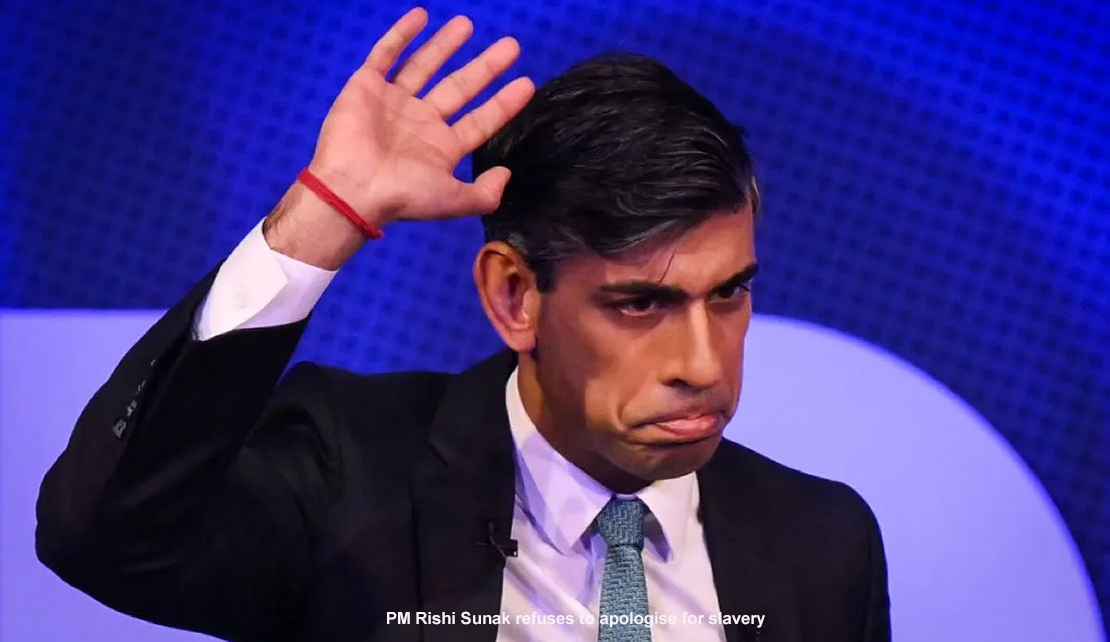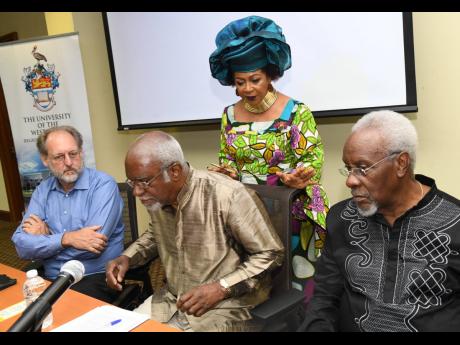BRITAIN | Despite PM Rishi Sunak, UK Push for slavery reparations gains momentum

Bristol, United Kingdom – January 12, 2024 - The movement for reparations in the UK, sparked by civil society's commitment to addressing the nation's historical involvement in the slave trade, has gained significant momentum.
This surge in activity and advocacy comes in the wake of a pivotal moment in April when UK Prime Minister Rishi Sunak declined to apologize for Britain’s role in the slave trade and dismissed the idea of reparations, as evidenced by a detailed Al Jazeera report.

The situation escalated in August, following remarks from a prominent United Nations judge, who asserted that the UK could no longer overlook calls for reparations and should reconsider its stance.
This international pressure coincides with a growing acknowledgment within Britain, where some descendants of enslavers have begun to apologize for their ancestors' actions.
In a historic move, King Charles publicly supported research into the British monarchy’s links to slavery, a step prompted by The Guardian’s investigation into its own historical connections with the slave trade.
This shift in perspective is not confined to the UK. Across Europe, nations are beginning to confront their pasts, with leaders in the Netherlands and Portugal acknowledging their countries' roles in slavery.
This broader European context underscores the transformation of the reparations discussion from a marginal topic to a mainstream concern, as noted by Cleo Lake, a creative artist and former lord mayor of Bristol.
![Malik Al Nasir, a poet and researcher, found that some of his ancestors were slave traders while others were enslaved people [Suyin Haynes/Al Jazeera]](/images/Malik_Al_Nasir.webp)
His project at the University of Cambridge, aimed at filling in gaps in his own history and the broader narrative of Caribbean and British connections, represents a significant stride in re-evaluating and understanding this complex legacy.
The symbolic actions of Black Lives Matter protesters in Bristol in 2020, who toppled a statue of slave trader Edward Colston, have ignited a national conversation about Britain's role in slavery and the need for reparative justice.
This renewed interest is evident in various sectors, from academia to media, as seen in The Guardian's Legacies of Enslavement project and the growing academic interest in exploring Britain's colonial past.
![John Dower, who has apologised for his family’s role in slavery, says descendants of traders should accept their troubled histories and work towards engaging with reparations discussions [Suyin Haynes/Al Jazeera]](/images/john-dower.webp)
The holistic approach to reparations, advocated by figures like Esther Stanford-Xosei and John Dower, aims to address systemic and structural changes, going beyond mere financial compensation.
In conclusion, the UK’s journey towards addressing its role in the slave trade, marked by both resistance and growing support, signifies a crucial step towards healing and equitable change.
The reparations movement, enriched by diverse voices and perspectives, continues to strive for a repaired world where the past is acknowledged, and the future is shaped by justice and reconciliation.
